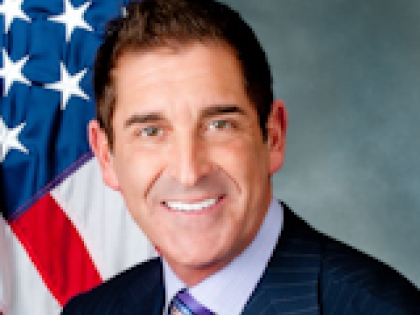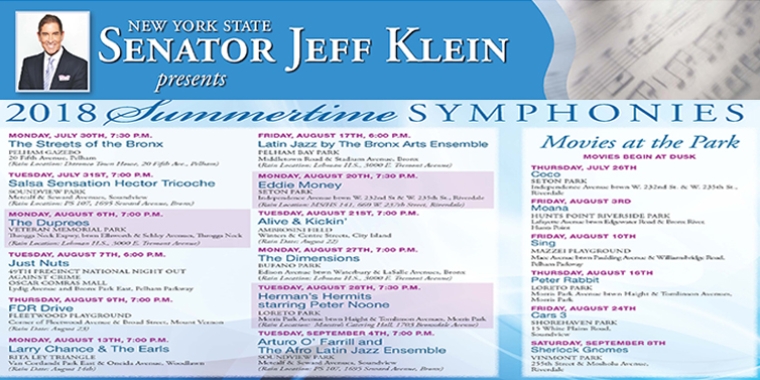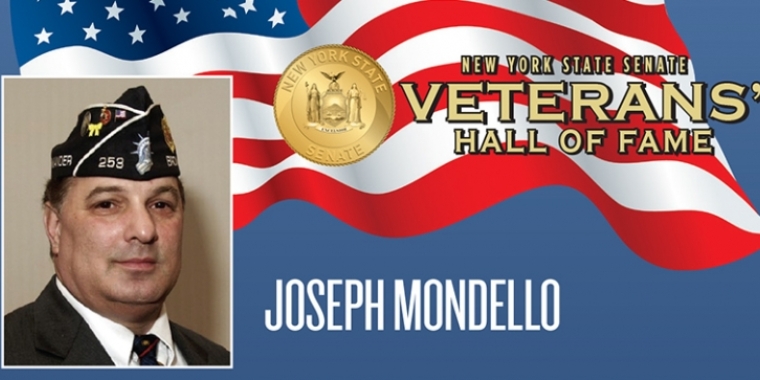
Senate Passes Bill Sponsored by Senator Savino to Bring Major Property Tax Savings On The Way for Seniors & Disabled New Yorkers
May 17, 2017
New Independent Democratic Conference Report Illustrates Benefits of SCHE/DHE Program Expansion in New York City
Albany, NY — The New York State Senate passed legislation sponsored by Senator Diane Savino (D–SI/Brooklyn) paving the way for major property tax savings for more senior and disabled homeowners on Wednesday.
This year, members of the Independent Democratic Conference pushed to increase the income eligibility for the Senior Citizen Homeowners’ Exemption (SCHE) and the Disabled Homeowners’ Exemption (DHE), programs which provide major property tax exemptions to residents living on fixed incomes through this legislation. The proposal recently received support from the city.
The IDC also released, “Keeping Housing Affordable for Seniors and Disabled New Yorkers,” illustrating how Senator Savino’s bill impacts homeowners across New York City.
The legislation would raise the income cap for SCHE/DHE to $50,000 for a full 50% property tax exemption and to $58,400 for a partial exemption, which will provide much-needed relief to New York City homeowners. The eligibility levels have not been raised since 2006.
“No senior or disabled homeowner should ever face the hard choice between paying an astronomical property tax bill or buying prescription drugs or other necessities. I’m proud that my legislation will bring real savings to our seniors and disabled homeowners living on fixed incomes in this city. With on average of over $1,750 saved, and in many cases more, this represents the best way to create affordability for these homeowners,” said Senator Savino.
“Our seniors deserve to live out their golden years without worrying that they can no longer afford their homes, the places where they raised their children and hold cherished memories. It is important that for seniors and disabled homeowners living on tight budgets we create an affordable New York by bringing real property tax relief by raising the income eligibility for SCHE and DHE to 2017 levels. I’m proud that the IDC has been the driving force behind this policy and I thank the city for their support,” said Senator Klein.
“Property taxes represent an affordability challenge particularly important to New York City seniors and those living with disabilities. Implementing these measures on the Senior Citizen Homeowners’ Exemption and the Disabled Homeowners’ Exemption takes a step forward in meeting that challenge. We need to recognize the unique circumstances these households face and accommodate their needs. That’s why I welcome these measures to raise the SCHE/DHE income thresholds and take meaningful action to make our communities more affordable,” said Senator Hamilton.
“With living costs always going up, more and more New Yorkers are having a difficult time keeping their homes, especially Senior Citizens and New Yorkers with disabilities. It is time we increase the income eligibility for SCHE and DHE. If this legislation is approved, I am sure we will be helping some of our most vulnerable homeowners stay where they belong: in their homes. I am proud that Senator Savino’s bill passed, and I applaud our Conference's efforts, as well as the efforts by all of those involved, to get property tax relief for seniors and people with disabilities,” said Senator Peralta.
“Seniors and disabled people face multiple economic and social burdens that make it difficult to make ends meet, and rising land values are bringing property taxes to new heights. New York needs to remain a city for everyone, and by expanding SCHE and DHE, homeowners and co-op residents will be better able to afford to live in the city. Housing cooperatives such as HDFC's are an integral part of New York City's affordable housing supply, and by exempting seniors and the disabled from the burden of rising property taxes, the security of owning your own apartment will be made available to more New Yorkers and be preserved for longtime residents,” said Senator Alcantara.
“Giving property tax breaks to more seniors and people with disabilities who own their homes is another big step forward in our ongoing efforts to ensure that our communities remain affordable for the people who have made New York the great city that it is,” said Assemblymember Brian Kavanagh, who sponsors the Assembly bill. “I thank Senator Savino, my colleagues in the legislature and all the advocates, seniors and people with disabilities who are working with us to get this done.”
The SCHE and DHE programs are currently capped at $29,000, but under the legislation passed today that eligibility level will raise to $50,000 for the full exemption capturing tens of thousands more senior and disabled homeowners who need relief.
|
SCHE Expansion |
DHE Expansion |
|
· Expand the income threshold for the full 50% exemption from $29,000 to $50,000 · Raise the maximum income threshold for a partial exemption from $37,399 to $58,400 · Allow 29,000 additional seniors to qualify for SCHE · Save the average senior $1,750 per year on their tax bill |
· Expand the income threshold for the full 50% exemption from $29,000 to $50,000 · Raise the maximum income threshold for a partial exemption from $37,399 to $58,400 · Allow 3,400 additional New Yorkers living with a disability to qualify for DHE · Save the average New Yorker living with a disability $1,750 per year on their tax bill |
This bill also increases the cap for partial exemptions to $58,400, with property tax exemptions provided to qualified senior and disabled homeowners on a sliding scale.
|
SCHE/DHE at $50,000 (Proposed) |
|
|
Income Range |
Abatement |
|
$57,500 - $58,400 |
5% |
|
$56,600 - $57,499 |
10.0% |
|
$55,700 - $56,599 |
15.0% |
|
$54,800 - $55,699 |
20.0% |
|
$53,900 - $54,799 |
25.0% |
|
$53,000 - $53,899 |
30.0% |
|
$52,000 - $52,999 |
35.0% |
|
$50,100 - $51,999 |
40.0% |
|
$50,001 - $50,999 |
45.0% |
|
$0 - $50,000 |
50.0% |
This translates to major savings in neighborhoods across the city depending on property type, property value and household income. In many cases, a senior or disabled homeowner could save significantly more than the projected average of $1,750.
“Affordable housing is the key to keeping New York City age-friendly, and property owners, just like renters, face obstacles to paying their housing costs. For many older middle class homeowners - especially those on fixed incomes as the vast majority are - property tax bill increases can make their own homes cost-prohibitive. AARP applauds the Senate for passing Senator Savino’s bill to help thousands more older New Yorkers afford to remain in their homes and in their city,” said Beth Finkel, AARP New York State Director.
“Offering tax relief to ensure aging New Yorkers can afford their housing is critically important to strengthening our communities and making New York a better place to live for everyone,” said Barry Kaufmann, President of the 490,000 member New York State Alliance for Retired Americans. “We are very grateful to Senator Savino and the IDC for recognizing this challenge and advancing this legislation to passage in the Senate.”
“LiveOn NY thanks the sponsors of this legislation to expand both the eligibility and tax benefits for the SCHE/DHE program making New York a more affordable state as we age. Older New Yorkers want to continue to live in their homes and support the communities they’ve helped build. Strengthening the SCHE/DHE tax abatement program for senior homeowners will allow thousands of New Yorkers to live more securely in their homes as SCHE/DHE provides them with a safety net of affordability,” said Allison Nickerson, Executive Director, LiveOn NY.
“Older adults are the fastest-growing population in New York City and it is essential that we work to protect the seniors who live here. United Neighborhood Houses has supported efforts to expand the Rent Freeze Program for seniors in the past and is proud to support this legislation to expand the Senior Citizen Homeowner Exemption Program. Seniors help make communities vibrant and diverse, and the passage of this bill is an important step to help seniors stay in their homes rather than in nursing homes or hospitals. UNH thanks Senator Savino for supporting this legislation to expand SCHE and for advocating for older New Yorkers,” said Nora Moran, Senior Policy Analyst, United Neighborhood Houses.
“Expanding the tax exemption eligibility for disabled and senior homeowners are one of the last remaining income inequity for these populations who at $29,000 are vastly disadvantaged in relation to the expenses of home ownership. Raising the income cap to $50,000 brings disabled and senior homeowners in line with RENT FREEZE programs that serve low income disabled and senior renters. The disability community was greatly disadvantaged under the DRIE & SCRIE programs. We are glad to see low income disabled and senior home owners receive this enhanced benefit,” said Edith Prentiss, VP of Legislative Affairs, Disabled In Action of Metro New York.
"We applaud Senators Savino and Klein for leading the fight to expand critical tax exemptions for elderly New Yorkers," said Christie Peale, Executive Director of the Center for NYC Neighborhoods. "As is, the exemptions exclude too many vulnerable seniors, especially in New York City, where the costs of living are so high. Expanding these exemptions will protect these homeowners and promote affordability."



